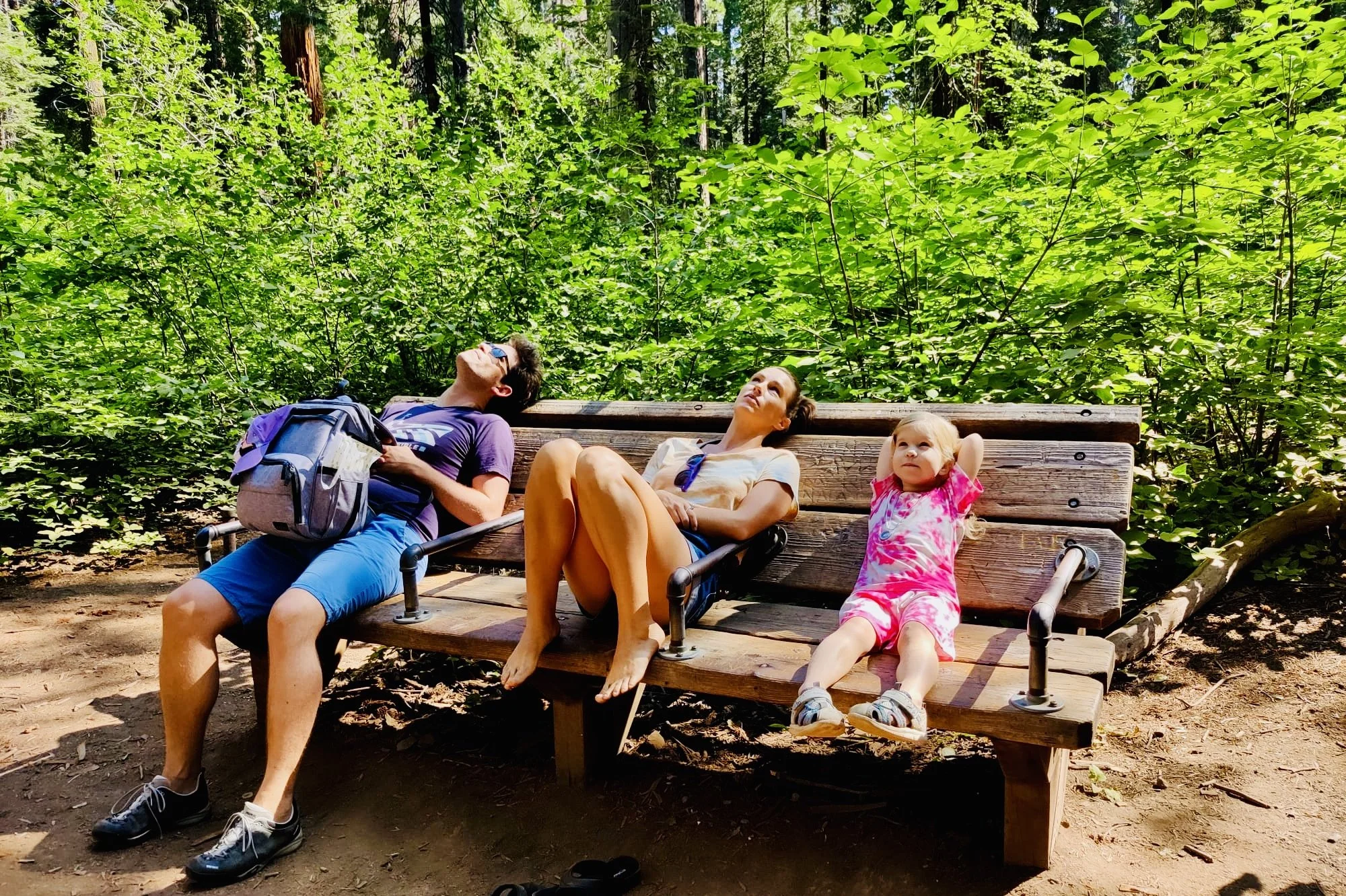The Stoic Traveler: How Philosophy Can Transform Your Adventures
Photocred: @Phillxsmil
Not sure if you can relate, but I often find myself frustrated because there’s never enough time to nurture all the different sides of me. I need time for myself to recharge my batteries, but I also want to spend meaningful time with my amazing husband. My friendships are incredibly important to me too, and staying in touch with friends I’ve made around the world—through phone calls, messages, or meetups—can be time-consuming.
And let’s not forget adulting (damnit): grocery shopping, laundry, cooking, cleaning, doing taxes...all those fun responsibilities. Then there are the personal projects I’ve been yearning to dive into—like writing my book or exploring the creative side of myself I’ve been meaning to nurture. Oh, and exercise! Health is everything, right?
In short, there’s never enough hours in the day. Of course, I’m far from the first person to feel this way.
That’s part of why my husband and I decided to take a year off from work to travel. We wanted to connect deeply with one another during our first year of marriage, nurture the many passions and sides of ourselves, and dedicate time to personal projects—like my book and his master’s degree.
With this newfound time, I’ve been very intentional about how I fill my days. I’ve prioritized learning, creating new neural pathways, and expanding my knowledge. Recently, I’ve stumbled upon the concepts of Stoicism. Heard of it?
Stoicism is a school of philosophy that originated in ancient Greece around 300 BCE. It later thrived in Rome, with influential figures like Seneca, Epictetus, and Emperor Marcus Aurelius. Stoicism emphasizes living a virtuous life, finding inner peace, and maintaining resilience by aligning with nature and reason.
As I’ve delved deeper into Stoicism, I’ve realized how well its principles align with a lifestyle centered on travel. Stoicism offers a philosophical framework that enhances the travel experience.
Here are some ways Stoic ideas connect to and enrich a life of exploration:
1. Embracing What You Can Control
Travel Context: When traveling, plans often go awry—flights get delayed, weather changes, or language barriers arise. Instead of fretting over these uncontrollable factors, a Stoic traveler focuses on their attitude and adaptability.
Example: If a flight is delayed, a Stoic might use the unexpected time at the airport to read, reflect, or connect with fellow travelers rather than complaining.
Practicing presence from an early age—my niece and I pausing to marvel at the towering redwoods of California, lost in the wonder of nature’s quiet magic- Big Tree National Park, 2021
2. Living with Gratitude and Presence
Travel Context: A passion for travel is deeply connected to the Stoic practice of gratitude and mindfulness. Every new place, culture, or experience becomes an opportunity to appreciate the richness of life.
Example: Instead of rushing to check off tourist attractions, a Stoic traveler takes time to savor the small moments—a quiet sunrise, the taste of local food, or a meaningful conversation with a local.
3. Practicing Minimalism
Travel Context: Stoicism advocates for focusing on what truly matters and letting go of excess. This philosophy complements the minimalist approach often adopted by travelers who pack light and prioritize experiences over possessions.
Example: A Stoic traveler might choose to spend money on an authentic local experience rather than accumulating souvenirs or staying in luxurious accommodations.
4. Facing Challenges with Resilience
Redwoods don’t quit after fire—neither should we.- Photocred: @nilsynils
Travel Context: Travel often presents challenges—getting lost, dealing with illness abroad, or navigating cultural misunderstandings. Stoicism helps travelers see these difficulties as opportunities for growth and self-discovery.
Example: Getting lost in a foreign city isn’t seen as a failure but as a chance to explore off-the-beaten-path areas and develop problem-solving skills.
5. Amor Fati (Loving Fate)
Travel Context: Travel is full of the unexpected, and Stoicism teaches us to embrace what happens, even if it wasn’t part of the plan. This attitude transforms surprises and setbacks into meaningful parts of the journey.
Example: Imagine you arrive at a remote village only to find that the festival you traveled to see has been canceled. Instead of feeling disappointed, a Stoic traveler might use the opportunity to explore the village at a slower pace, discovering hidden gems like a local bakery or artist’s workshop, and forming deeper connections with the locals who now have more time to chat.
Sharing big smiles with my Angolan teaching assistant and her sweet kids during Culture Day at our school. -Luanda, Angola, 2017
6. Fostering Connection and Humanity
Travel Context: Stoicism emphasizes the shared humanity of all people, aligning with the traveler’s desire to connect across cultures. By recognizing the commonalities between people worldwide, travel becomes an act of practicing compassion and understanding.
Example: When encountering cultural differences, a Stoic traveler approaches them with curiosity and respect rather than judgment.
7. Reflecting on Mortality (Memento Mori)
Travel Context: Travel is a powerful reminder of life’s fleeting nature—the beauty of a sunset, the grandeur of ancient ruins, or the laughter of a street performer all highlight the impermanence of the moment. Stoicism teaches travelers to cherish these experiences while they last.
Example: A traveler inspired by Stoicism might journal about their gratitude for a unique experience, knowing it won’t last forever.
Conclusion: Stoic Travel as a Philosophy
For Stoic-minded travelers, travel isn’t about escaping life or ticking off bucket lists; it’s about fully engaging with the world, embracing both the beauty and the challenges of the journey. By approaching travel with a Stoic mindset, you cultivate resilience, gratitude, and a deeper connection to both yourself and the world around you.
✍️ Your Turn to Reflect
Take a moment to ponder:
How might a Stoic mindset shift the way you experience travel—or your daily routine?
Have you ever faced a travel mishap that tested your patience or perspective? What helped you stay grounded or adapt in that moment?
What’s one recent experience, big or small, that reminded you of life’s impermanence? How did it shift your perspective?
Which aspects of your identity or passions have you neglected in the name of productivity—and how might you carve out space to reconnect with them?
I'd love to hear your thoughts! Share your experiences in the comments and let’s learn from each other’s stories. Your insight might just inspire someone.



